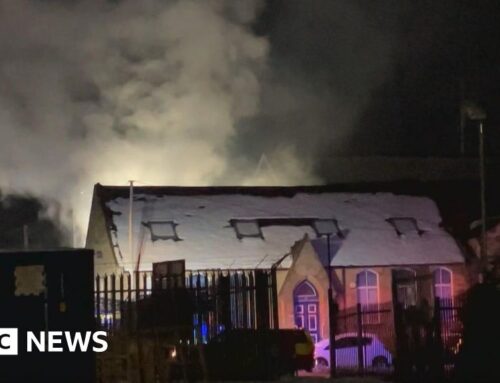Montana State Supreme Court Upholds Historic Climate Decision
December 23, 2024

Thom Bridge/Independent Record via AP
Youth plaintiffs in the Held v. Montana climate case leave the Montana Supreme Court, July 10, 2024, in Helena, Montana.
Montana’s Republican lawmakers may not be swayed by the gravity of climate crisis, but six state Supreme Court justices did not need convincing. Last Wednesday, 16 young plaintiffs won a resounding victory as those jurists upheld a historic 2023 climate decision, with only one dissenting vote among the seven justices. With climate deniers poised to roll back energy and environmental policies in Washington next year, and the U.N. climate conference (COP29) failing to resolve major international challenges, the decision was a bright spot in an otherwise dismal year of climate policy developments.
The case tackled the state’s appeal of Held v. Montana (2023), which found a provision of the Montana Environmental Policy Act (MEPA) unconstitutional. This “MEPA limitation” prohibited environmental studies demonstrating how the state’s greenhouse gas emissions contribute to global climate change. The state Supreme Court agreed with a lower-court ruling that the provision is unconstitutional because it violated the right to “a clean and healthful environment.”
In the 2023 decision, Judge Kathy Seeley took great care to provide a detailed exploration of the climate issues and give credence to the young people’s fears for their future. While state Supreme Court justices touched on some climate issues, such as increasing global temperatures, they turned their attention to the specific question of climate change as “a serious threat to the constitutional guarantee of a clean and healthful environment in Montana.”
Significantly, the justices pointed to the state constitution’s stipulation that “the state and each person shall maintain and improve” Montana’s environment “for present and future generations.” The legislature, for its part, had the responsibility to protect what they termed the “environmental life support system” from “unreasonable depletion and degradation of natural resources.”
They decided that the framers of the state constitution wanted to carve out “the strongest environmental protection provision found in any state constitution” and agreed with the young plaintiffs that there is ample evidence that the climate crisis has exacerbated wildfires and affected air and water quality in the state. The jurists also noted that the framers “would [not] grant the State a free pass to pollute the Montana environment just because the rest of the world insisted on doing so.”
The single dissent from Justice Jim Rice rested largely on the standing of the young people to bring the initial lawsuit. He argued that there was “no project, no application, no decision, no permit, no enforcement of a statute” that materially affected the group. Their stories were “not legally unique” and no different from other state residents.
Gov. Greg Gianforte (R-MT) argued that the case will prompt “perpetual lawsuits” and increase energy bills for residents. He also echoed the dissenting justice’s contention that the decision was another example of judicial activism with the court “step[ping] outside of its lane” to tread on legislative prerogatives. Not surprisingly, using Held v. Montana as an entrée, Montana Republican legislative leaders—the GOP controls both chambers—have pledged to take up new curbs on the state courts when the legislature reconvenes in January.
But for now, the ruling produces a powerful precedent that citizens, no matter their age, play an important role in shielding the planet from environmental harm, and cannot be easily dismissed.
Search
RECENT PRESS RELEASES
Related Post



